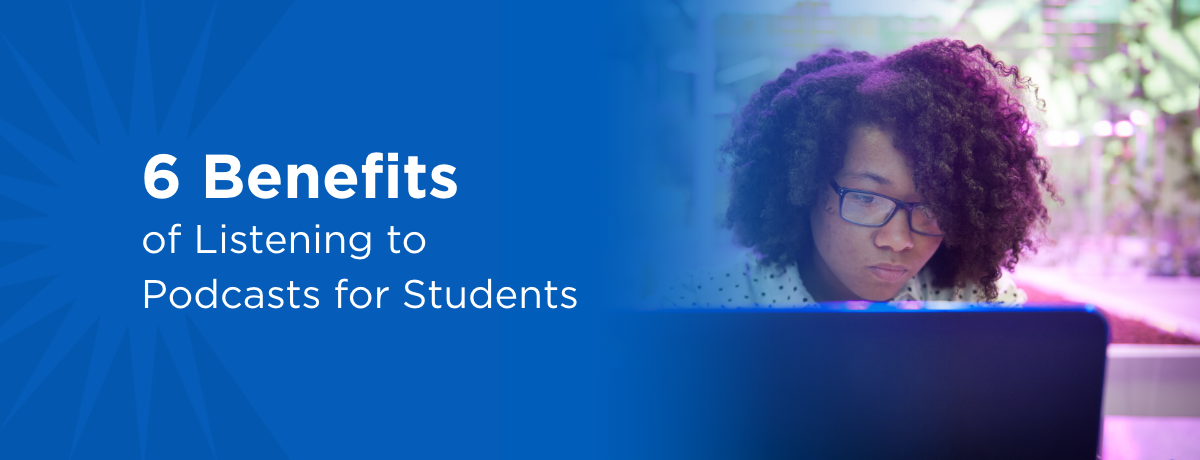In education, podcasting is a fast-rising trend that offers students an alternative learning method. This technology improves listening comprehension and creates more accessibility, giving all students a chance to grow. Usually, students last longer listening to a podcast than reading or watching a lesson.
Keep reading to learn more about the benefits of podcasts in education.
1. Increases Engagement
The world of podcasting has become so popular because it focuses on the emotional appeal of listening. A great podcast will hook its listeners’ attention through a plot and characters — even when the story is nonfiction. This aspect makes the information more personal, helping listeners feel like they’re part of the action with the community of listeners.
It can often be challenging to achieve such engagement through textbooks, as podcasts offer music, sound effects, and other elements that tie the topic together. By introducing intriguing mediums that stimulate the senses, teachers can ensure their students are learning as much as possible.
With podcasts, students will be more inclined to engage with and participate in the lesson, making them a wonderful supplement to traditional teaching methods.
2. Strengthens Listening and Comprehension Skills
These skills are essential for academic and career success — and podcasts can help teachers instill them.
As students get older, listening comprehension becomes the main component for learning — they decode words automatically because they’re already used to applying word recognition in the classroom. It builds confidence and literacy for younger students, keeping easily distracted students focused on the text.
When entering the workforce, students will require listening and comprehension abilities to succeed in their roles, no matter their fields. Every day, employees must engage with clients, customers, and co-workers, which demands proper communication skills. By emphasizing listening skills in school from the beginning, educators will set their students up for success.
Using podcasts for lessons gives instructors a new way to communicate lessons. This type of education technology helps students experience communication through a method they may have never experienced before. While students listen to an episode, they can follow along with the episode’s transcript, helping them fully capture each lesson along the way.
3. Encourages Learning on the Go
Another pro of using podcasts in education is that it gives students the flexibility to listen whenever and wherever they want, including when they ride the bus, walk around the neighborhood, or relax at home. Because podcasts are easily accessible, it’s easy for students to explore educational content without prior planning. This convenience is especially helpful for visually impaired students, who may typically have to make arrangements before consuming content.
With podcasts, students have a way to learn about new topics and stimulate their brains while on the go.

4. Offers a New Way for Students to Interact With Media
These days, kids can access technology from a young age — even toddlers have ways to watch videos and play with other electronics. The average 8-year-old spends nearly eight hours a day using technology, with their older siblings spending at least 11 hours on electronics each day. While researchers are still determining the impact of increased technology use, we know that engaging students through new mediums helps them remain engaged.
Overall, podcasts offer an alternative to screens and a more educational form of entertainment than many other online activities. It’s one of the best educational technologies teachers can use for learning. Rather than have students watch videos, increasing their screentime, educators can assign podcast episodes as coursework.
As a result, podcasts become an alternative to games, videos, and other forms of media while still capitalizing on technology’s benefits.
5. Helps Students Overcome Learning Challenges
Many students experience learning difficulties, which can cause them to not learn in the same way or as quickly as their peers. Some common learning challenges are:
- Dyslexia
- Dysgraphia
- Dyscalculia
- Auditory processing disorder
- Language processing disorder
- Nonverbal learning difficulties
- Visual perceptual/motor deficit
The three main types of learning — kinesthetic, visual, and auditory — will have varying impacts on children, as each student has their own preferred style. For example, auditory learners canfollow oral directions more closely than their peers, while kinesthetic learners are adept in physical activities like sports. Knowing what type of learner a student is can help them overcome learning challenges to excel in the classroom.
Though podcasts can directly benefit auditory learners, teachers can pair podcasts with other types of lessons to enhance the experience for all students. A lesson about butterflies might include listening to a podcast episode about butterfly migration, researching local types of butterflies, and participating in planting a butterfly garden. This way, the podcast becomes a supplemental learning device.
6. Inspires People to Work Harder
While many academic podcasts are available for students and teachers, you can also find podcasts in other genres, including comedy, drama, reality, and motivation. It’s often a fun and impactful idea for kids to listen to podcasts that aren’t educational in the traditional sense. For example, listening to a podcast about how someone started their own business could inspire students to want to do the same.
Using a variety of podcasts in lesson planning can help teachers boost curiosity and development — it may even encourage kids to start their own podcasts!
Contact CCA to Learn More
New teaching methods like podcasts are great ways to accelerate the learning process. This medium can engage students in the classroom, helping them tackle complex material and overcome learning challenges. When you’re looking for the right school for your child, it’s important to find a curriculum that provides those kinds of innovative teaching methods.
Here at Commonwealth Charter Academy (CCA), we encourage teachers to incorporate multimedia content, like podcasts, into their lessons and assignments to develop engaged learning. By using podcasts in education, our educators ensure all students have a way to learn. If you’re interested in giving your child such an experience, contact us to request more information.




